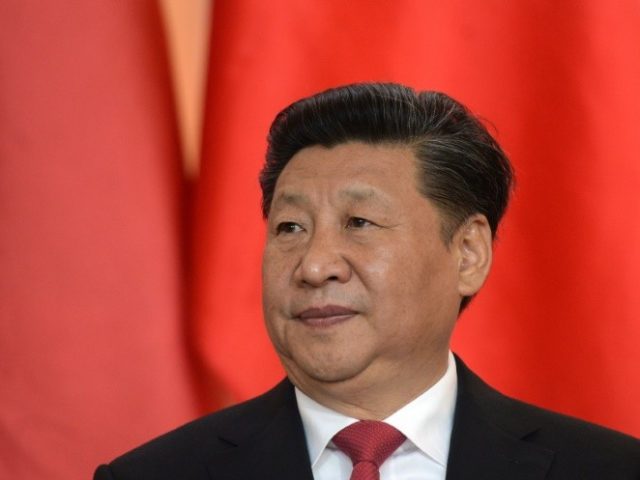In 2013, the Philippines took China to court over Beijing’s seizure of Scarborough Shoal, which lies within Manila’s 200-mile Exclusive Economic Zone, or EEZ. The South China Sea and its resources do not belong solely to China, the Philippine government said, but to all of the nations– Brunei, Malaysia, the Philippines, Taiwan and Vietnam—that surround it.
That court, the Permanent Court of Arbitration based in The Hague, has today issued a ruling. It found Beijing’s historical fiction that the South China Sea is sovereign Chinese territory to be totally without merit, and its aggressive actions against other claimants indefensible under international law.
The tribunal decisively rejected Beijing’s claim that the South China Sea had belonged to China “since ancient times,” saying flatly that this claim has “no legal basis.” Beijing’s so-called nine-dash line, which covers nine-tenths of the South China Sea, has no legal standing, and any claims to resources within its waters or on its seabed are without merit.
It further ruled that China had violated the sovereign rights of the Philippines by carrying out oil and gas exploration activities near Reed Bank, and also by unlawfully excluding Filipino fishermen from their traditional fishing grounds near Scarborough Shoal.
The court also debunked China’s claim, made in 2011 to the UN Secretary-General, that it has sovereignty over islands in the South China Sea. There are no “islands” in the South China Sea, the judges unanimously ruled, only mostly submerged features incapable of supporting a permanent population. The artificial structures that China has been creating (by wantonly destroying coral reefs) are not “islands,” and do not have exclusive economic zones.
Moreover, the court severely criticized “China’s recent large scale land reclamation and construction of artificial islands at seven features in the Spratly Islands [that] have caused several harm to the coral reef environment,” calling this a violation of international law.
The findings, which are contained in an exhaustive, 501-page ruling, strike at the heart of China’s claims to exercise jurisdiction over the South China Sea.
The Chinese Ministry of Foreign Affairs predictably denounced the ruling, “solemnly declar[ing] that [it] is null and void and has no binding force. China neither accepts nor recognizes it.”
If China’s rhetoric sounds overwrought, its future actions may be even more so.
After all, the decision is a humiliating defeat for Party boss Xi Jinping, under whose tenure China has greatly expanded its island-building campaign.
To avenge his loss of face, analysts expect him to take aggressive action, perhaps declaring an Air Defense Identification Zone (ADIZ) over the South China Sea, or to begin aggressively constructing a military base on disputed Scarborough Shoal.
Such an escalation would greatly increase the risk of a confrontation between China and its neighbors.
Already in the months leading up to the tribunal’s decision, Beijing has ratcheted up its extraordinary territorial claims. China’s Ministry of Defense has repeatedly asserted that its armed forces would ” safeguard the sovereignty, security and territorial integrity of the country,” making it clear that it would defend the “blue earth” of the South China Sea.
It has opened new military runways on the disputed Spratly Islands, and just commissioned a new guided missile destroyer at the Hainan naval base of its South China Sea fleet.
The Philippines is predictably pleased with the ruling. “The award is a complete and total victory for the Philippines… a victory for international law and international relations,” said Paul Reichler, who represented the country before the tribunal. Japan and Vietnam have applauded the ruling as well.
The U.S. government pointedly reminded China that “…the Tribunal’s decision is final and legally binding on both China and the Philippines. The United States expresses its hope and expectation that both parties will comply with their obligations.”
This does not appear likely, at least over the short term. Beijing’s propaganda machine has gone into overdrive attacking the ruling. News of the ruling was censored in China, with BBC’s broadcast on the South China Sea ruling replaced with a black screen.
Social media users, many of whom are paid by the post for supporting government propaganda, are echoing the government’s outrage. As one Weibo commentator wrote, “The South China Sea carries China’s name! The sea was China’s, is China’s and will always be China’s.”
In the aftermath of the decision, the ball is now in China’s court. It is up to China’s leaders whether the competing claims in the South China Sea will ultimately be resolved by peaceful negotiation or by military force. And on this decision hinges the shape of the world to come.
Once China’s Communist China’s leaders abandoned their self-imposed isolation in the 1980s, U.S. policy has been to invite them to become stakeholders in the existing world order.
If Xi Jinping and his fellow Politburo members decide to permanently reject the ruling of the tribunal, they are rejecting as well the international rule of law. Indeed, they are rejecting the existing, rules-based, international order.
If that happens, it should be clear to everyone that Beijing is rejecting the peaceful resolution of international disputes in favor of a much older and much more dangerous principal: that might makes right.
Steven W. Mosher is the President of the Population Research Institute and the author of The Bully of Asia (forthcoming).

COMMENTS
Please let us know if you're having issues with commenting.